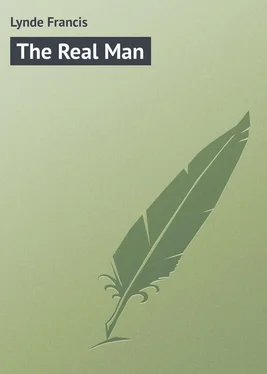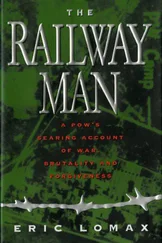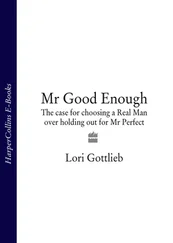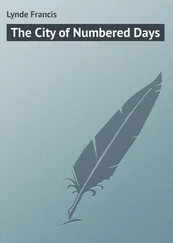Francis Lynde - The Real Man
Здесь есть возможность читать онлайн «Francis Lynde - The Real Man» — ознакомительный отрывок электронной книги совершенно бесплатно, а после прочтения отрывка купить полную версию. В некоторых случаях можно слушать аудио, скачать через торрент в формате fb2 и присутствует краткое содержание. Жанр: foreign_prose, на английском языке. Описание произведения, (предисловие) а так же отзывы посетителей доступны на портале библиотеки ЛибКат.
- Название:The Real Man
- Автор:
- Жанр:
- Год:неизвестен
- ISBN:нет данных
- Рейтинг книги:4 / 5. Голосов: 1
-
Избранное:Добавить в избранное
- Отзывы:
-
Ваша оценка:
- 80
- 1
- 2
- 3
- 4
- 5
The Real Man: краткое содержание, описание и аннотация
Предлагаем к чтению аннотацию, описание, краткое содержание или предисловие (зависит от того, что написал сам автор книги «The Real Man»). Если вы не нашли необходимую информацию о книге — напишите в комментариях, мы постараемся отыскать её.
The Real Man — читать онлайн ознакомительный отрывок
Ниже представлен текст книги, разбитый по страницам. Система сохранения места последней прочитанной страницы, позволяет с удобством читать онлайн бесплатно книгу «The Real Man», без необходимости каждый раз заново искать на чём Вы остановились. Поставьте закладку, и сможете в любой момент перейти на страницу, на которой закончили чтение.
Интервал:
Закладка:
Thus far he had struck out no plan. But the sudden shift from the normal to the extraordinary had not shorn him of the ability to think quickly and to the definite end. A placed road-engine, waiting for the conclusion of the car sorting, told him that the next train to leave the yard would be a westbound freight. He would have given much to know its exact leaving time, but he was far too clear-headed to give the pursuers a clew by asking questions.
Keeping to the shadows, he walked back along the line of cars on the make-up track, alertly seeking his opportunity. If worst came to worst, he could select a car with four truss-rods and crawl in on top of the rods after the manner of the professional ride-stealers. But this was a last resort; the risk was large for his inexperience, and he was very well aware that there must be some sort of an apprenticeship, even to the "brake-beamer's" trade.
Half-way down the length of the train he found what he was looking for: a box car with its side-door hasped but not locked. With a bit of stick to lengthen his reach, he unfastened the hasp, and at the switching crew's addition of another car to the "make-up" he took advantage of the noise made by the jangling crash and slid the door. Then he ascertained by groping into the dark interior that the car was empty. With a foot on the truss-rod he climbed in, and at the next coupling crash closed the door.
So far, all was well. Unless the start should be too long delayed, or the trainmen should discover the unhasped door, he was measurably safe. Still cool and collected, he began to cast about for some means of replacing the outside fastening of the door from within. There was loose hay under-foot and it gave him his idea. Groping again, he found a piece of wire, a broken bale-tie. The box car was old and much of its inner sheathing had disappeared. With the help of his pocket-knife he enlarged a crack in the outer sheathing near the door, and a skilful bit of juggling with the bent wire sufficed to lift the hasp into place on the outside and hook it.
Following this clever removal of one of the hazards, he squatted upon the floor near the door and waited. Though he was familiar with the schedules of the passenger-trains serving the home city, he knew nothing of the movements of the freights. Opening the face of his watch, he felt the hands. It was half-past nine, and the thrust and whistle of the air-brakes under the cars gave notice that the road engine had been coupled on. Still the train did not pull out.
After a little he was able to account for the delay. Though his knowledge of railroad operating was limited, common sense told him that the freight would not be likely to leave, now, ahead of the ten o'clock passenger. That meant another half-hour of suspense to be paid for in such coin as one might be able to offer. The fugitive paid in keen agonies of apprehension. Surely, long before this the watchman would have returned to the bank, and the hue and cry being raised, the pursuit must now be afoot. In that case, the dullest policeman on the force would know enough to make straight for the railroad yard.
Smith knelt at the crack of the car door and listened, while the minutes dragged slowly in procession. Once, through the crack, he had a glimpse of the smoky flare of a kerosene torch in the hands of a passing car-inspector; and once again, one of the trainmen walked back over the tops of the cars, making a creaky thundering overhead as he tramped from end to end of the "empty." But as yet there was no hue and cry, or, if there were, it had not reached the railroad yard.
Keenly alive to every passing sound, Smith finally heard the passenger-train coming in from the east; heard the hoarse stridor of the engine's pop-valve at the station stop, and the distance-diminished rumblings of the baggage and express trucks over the wooden station platform. The stop was a short one, and in a few minutes the passenger-train came down through the yard, its pace measured by the sharp staccato blasts of the exhaust. It was the signal of release, and as the quickening staccato trailed away into silence, Smith braced himself for the slack-taking jerk of the starting freight.
The jerk did not come. Minute by minute the interval lengthened, and at last the listener in the "empty" heard voices and saw through the crack of the door a faint nimbus of lantern light approaching from the rear of the train. The voices came nearer. By the dodging movements of the light rays, Smith knew instantly what was coming. His pursuers were out, and they were overhauling the waiting freight-train, searching it for a stowaway.
He hardly dared breathe when the lantern-bearers reached his car. There were a number of them, just how many he could not determine. But McCloskey, the Lawrenceville chief of police, was one of the number. Also, there was an Irish yardman who was carrying one of the lanterns and swinging it under the cars to show that the truss-rods and brake-beams were empty.
"'Tis not the likes of him that do be brake-beamin' their way out of town, Chief," the Irishman was saying. "'Tis more likely he's tuk an autymobile and the middle of the big road."
"There's no automobile missing, and his own car is still in the garage," Smith heard the police chief say. And then: "Hold your lantern up here, Timmy, till we see if this car door is fastened shut."
It was a measure of the distance that the bank clerk and small-city social leader had already travelled on the road toward a complete metamorphosis that the only answer to this threat of discovery was a tightening of the muscles, a certain steeling of thews and sinews for the wild-beast spring if the door should be opened. One thought dominated all others: if they took him they should not take him alive.
Happily or unhappily, as one may wish to view it, the danger passed. "The door's fastened, all right," said one of the searchers, and the menace went on, leaving Smith breathing hard and chuckling grimly to himself over the cunning forethought which had prompted him to grope for the bit of wire bale-tie.
Past this there was another interval of waiting – a brief one, this time. Then the long freight began to move out over the switches. When he could no longer see the sheen of the city electrics in the strip of sky visible through his door crack, Smith gathered up the leavings of hay on the car floor and stretched himself out flat on his back. And it was another measure of the complete triumph of the elemental underman over the bank clerk that he immediately fell asleep and did not awaken until a jangling of draw-bars and a ray of sunlight sifting through the crack of the door told him that the train had arrived at some destination, and that it was morning.
Sitting up to rub his eyes and look at his watch, the fugitive made a hasty calculation. If the train had been in motion all night, this early morning stopping-place should be Indianapolis. Getting upon his feet, he applied an investigative eye to the crack. The train, or at least his portion of it, was side-tracked in a big yard with many others. Working the pick-lock wire again, he unhasped the door and opened it. There was no one in sight in this particular alley of the crowded yard, and he dropped to the ground and slid the door back into place.
Making a note of the initials and number, so that he might find the car again, he crawled under three or four standing trains and made his way to a track-side lunch-counter. The thick ham sandwich and the cup of muddy coffee eaten and drunk with the appetite of a starved vagrant set up another mile-stone in the distances traversed. Was it, indeed, only on the morning of yesterday that he had sent his toast back because, forsooth, the maid at Mrs. Gilman's select boarding-house for single gentlemen had scorched it a trifle? It seemed as incredible as a fairytale.
Читать дальшеИнтервал:
Закладка:
Похожие книги на «The Real Man»
Представляем Вашему вниманию похожие книги на «The Real Man» списком для выбора. Мы отобрали схожую по названию и смыслу литературу в надежде предоставить читателям больше вариантов отыскать новые, интересные, ещё непрочитанные произведения.
Обсуждение, отзывы о книге «The Real Man» и просто собственные мнения читателей. Оставьте ваши комментарии, напишите, что Вы думаете о произведении, его смысле или главных героях. Укажите что конкретно понравилось, а что нет, и почему Вы так считаете.












